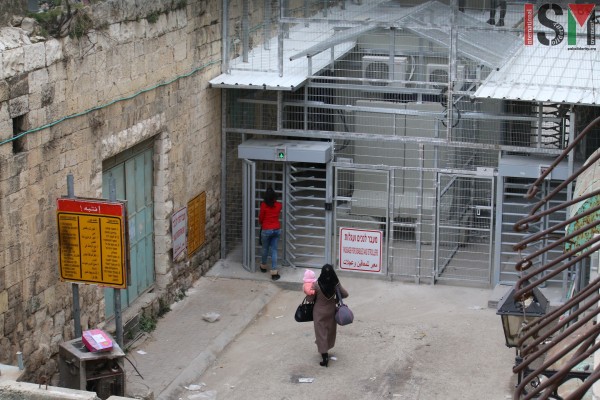-
100 days of collective punishment for Hebron residents
7th February 2016 | International Solidarity Movement | Hebron, occupied Palestine February 8th marks one hundred days since Israeli forces declared the Tel Rumeida neighborhood and the adjacent portion of Shuhada Street a “closed military zone,” requiring residents to register with the Israeli military and be assigned numbers in order to be allowed to access […]
-
Three new homes will be demolished in Jerusalem
7th February 2016 | International Solidarity Movement, Ramallah Team | South Jerusalem, occupied Palestine Yesterday, on Saturday February 6th, we visited the house of 49 year old, Salah Abukaf, who lives in the neighborhood of Sur Baher in occupied South Jerusalem, and two days ago received a house demolition order. Last year, on September […]
-
Closed military zone in Shuhada Street and Tel Rumeida extended yet another month
6th February 2016 | International Solidarity Movement, Al-Khalil Team | Hebron, occupied Palestine Since the 1st of November 2015 the Tel Rumeida area and Shuhada Street in occupied Al-Khalil (Hebron) have been declared a ‘closed military zone’. The first declaration of the closure was for one month, but since then the order has been extended […]
Action Alert An Nabi Saleh Apartheid Wall Arrests BDS Bethlehem Bil'in Cast Lead Demonstration Denial of Entry Ethnic Cleansing Farmers Gaza Global Actions Hebron House Demolition International law Israeli Army Jerusalem Live Ammunition Nablus Ni'lin Prisoner Ramallah Rubber-coated steel bullets Settlement Settlers Settler violence Tear-Gas Canister Video



